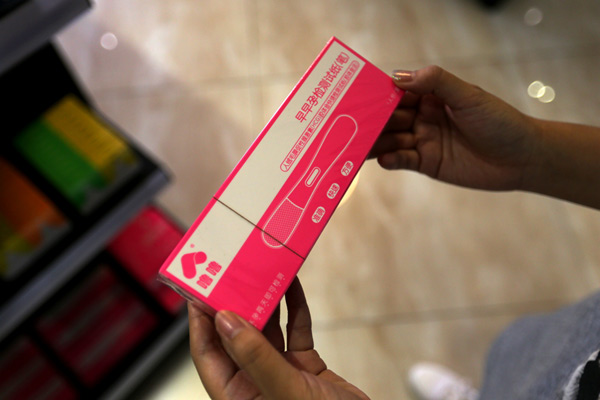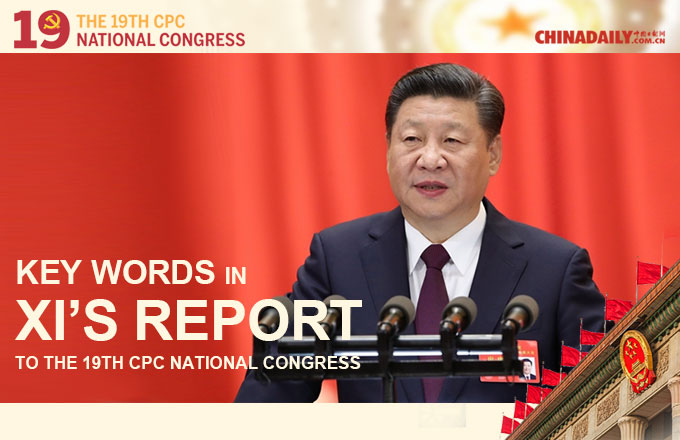Domestic startups challenging foreign condom brands
 |
|
A pregnancy test made by Beijing Lulu.[Photo by Wang Zhuangfei/China Daily] |
Emerging brands
The health authorities have been supplying free contraceptive devices and pills since the 1970s, when the government began promoting the family planning policy nationwide and contraception was included as part of the basic public health service program.
Every year, the National Health and Family Planning Commission purchases more than 1 billion condoms to distribute free of charge under a program designed to prevent sexually transmitted diseases and unwanted pregnancies.
However, in 2014, the commission replaced fixed-supplier purchases with a public tender system, which resulted in the emergence of domestic condom brands.
"The market in China has been dominated by overseas brands for years. Now, it's time to show the great potential of Chinese-made condoms," said Feng Huaping, CEO of Beijing Lulu Technology, which was founded in 2015 and provides high-quality products for the younger generation, including condoms, sex toys and erotic underwear.
The company has nearly 100 stores in various provinces and municipalities, including Beijing and Hubei province in the north, and Guangzhou, capital of Guangdong province, in the south.
Some of the stores are self-service, not only to keep operating costs low, but also to protect customers' privacy.
Beijing Lulu's best-selling product is a condom made to its own patented, innovative design, boasting thicker rubber at the tip to reduce sensitivity and prolong intercourse.
Feng said the design has been adopted in two of the company's main condom series - one is manufactured domestically while the other is made in Malaysia, the world's largest producer of high-quality rubber. In the coming months, condoms made in Japan and boasting the thicker top will also enter the market.
"Unlike the older generation, which still regards sex as a taboo subject, the younger generation has an open mind," Feng said. "We are experiencing an era of consumption upgrades. Young people will pay for these products not only because they are high quality, but also because they illustrate life attitudes. They expect something interesting from these products."




















